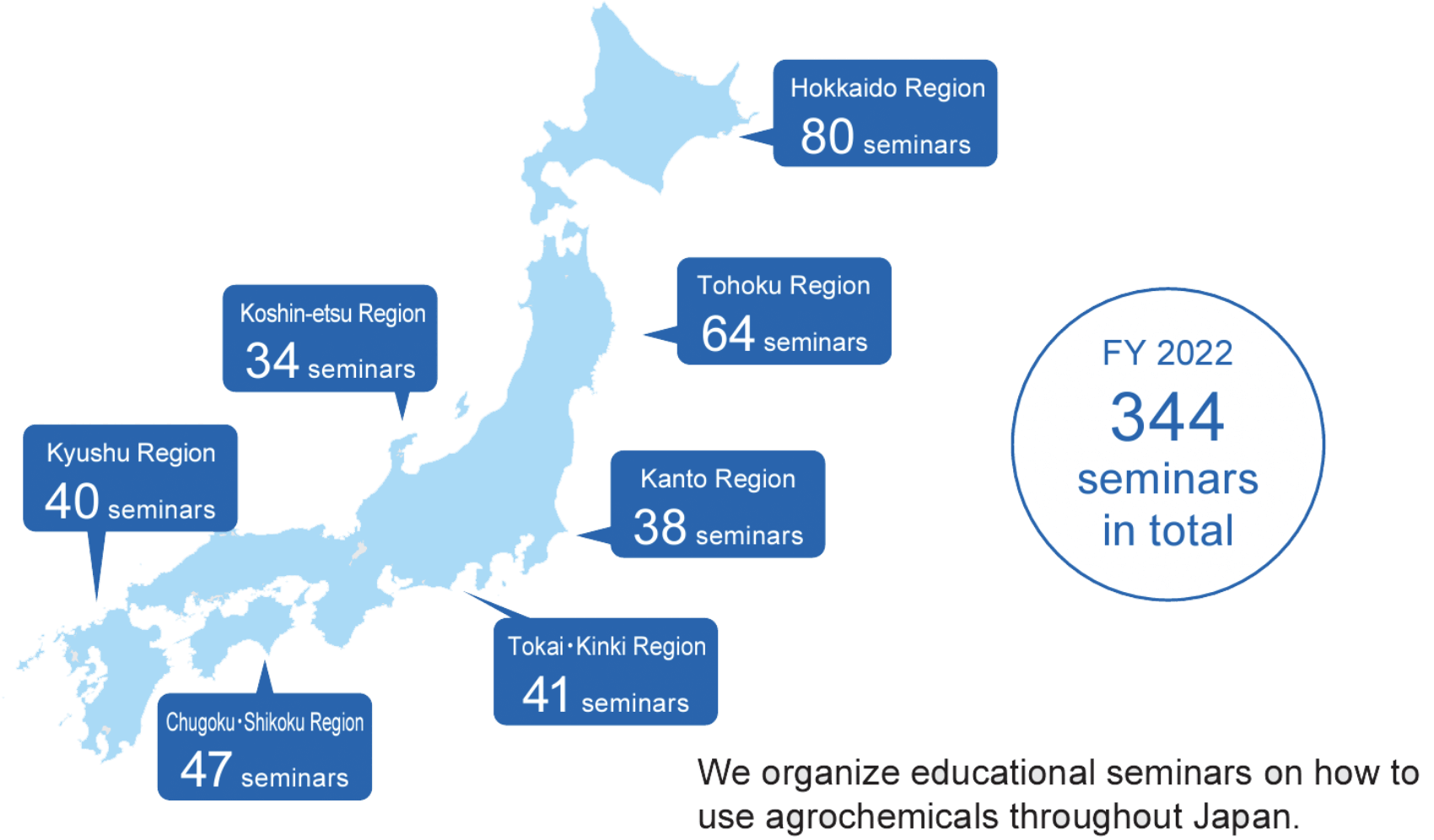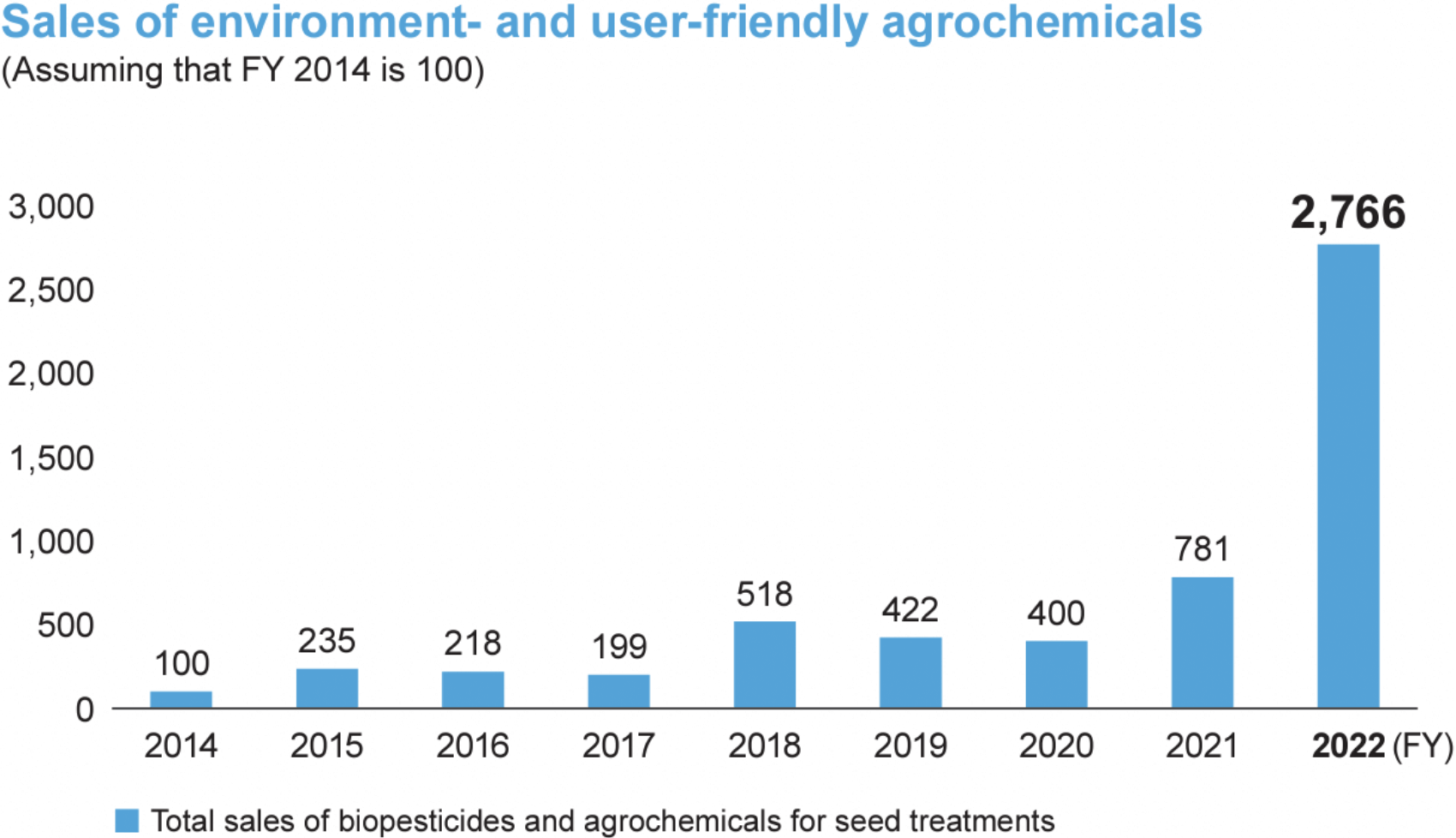 Agriculture
Agriculture
Securing food and achieving sustainable agriculture
The world population is expected to reach ten billion in 2050, and a large amount of food and feed will be required. Also, the global warming megatrend will increase the outbreak of agricultural pests.
The Nippon Soda Group supplies safe and effective agrochemicals that are highly rated around the world. We expect needs for higher levels of safety to continue increasing, so we will create new agrochemicals that are safer and more effective by using advanced synthetic technology to contribute to the world’s food supply. Additionally, we will utilize information and communications technology (ICT) and other technologies to support labor-saving pest control work and the production of high-quality crops.
SDGs
Materiality
Ensuring food safety and contributing to sustainable agriculture using agrochemicals
-
01
Contribution to the global supply of food
-
02
Diversification of crop protection
-
03
Streamlining and improving labor efficiency in farming production
KPI
① Hosting of seminars

②-1 Current initiatives:
Measures to control bacterial diseases
Nippon Soda acquired three chemical products, AGRIMYCIN, BACTICIDE and MYCOSHIELD, from Zoetis Japan Inc. in September 2018. This has enabled us to provide a greater range of information on how to control bacterial diseases in fruit trees and vegetables. As bacterial diseases are a serious problem, concerns are high. We visit those concerned to hold briefings on measures to control bacterial diseases and research trends.
②-2 Current initiatives:
Supply of environment- and user-friendly agrochemicals

We are developing environmentally friendly biopesticides that have minimal impact on ecosystems, and expanding our business to seed treatments that reduce pesticide exposure and in turn improve user safety.
②-3 Current initiatives:
Optimizing pest control work through use of ICT
Achievements in FY 2022
- We conducted tests on 15 crops and 10 chemical agents in preparation for drone registration. As a result, a number of prefectural governments and agricultural institutions expressed interest in using drones for one of the crops and two of the chemical agents, and we are currently preparing applications to register use of the drones.
-
One employee from sales newly acquired a drone operator license, bringing the total number to 21.
(Breakdown of drone operators)
Nileworks Inc. drone technical training license: 15 (sales employees and research staff)
Yamaha Motor Co., Ltd. drone technical training license: 6 (sales employees, engineers, and research staff)


